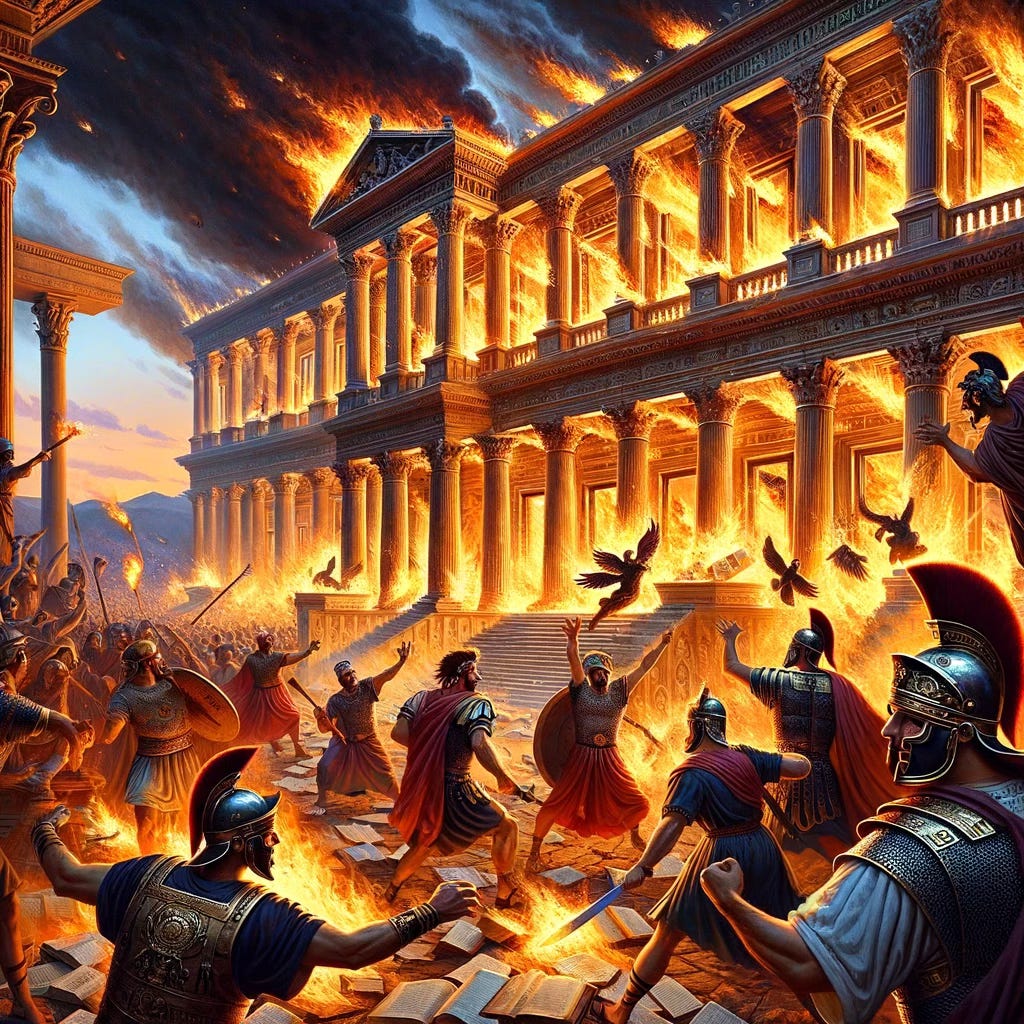The Library of Alexandria, an enduring symbol of the thirst for knowledge and cultural exchange, represents one of history's most intriguing tales. Born from the ambition of the Ptolemaic Dynasty in Egypt, this library flourished as a beacon of intellectual pursuit and scholarly collaboration. The story of its rise, glory, and eventual downfall is not just a tale of bricks and scrolls, but a narrative deeply intertwined with the ebbs and flows of ancient civilizations, power politics, and the fragility of human knowledge.
The Library of Alexandria's inception can be traced back to the reign of Ptolemy I Soter, a general under Alexander the Great, who established the Ptolemaic Kingdom in Egypt after Alexander's death. The library was conceived as part of the larger Musaeum of Alexandria, an institution dedicated to the Muses, the Greek goddesses of inspiration in literature, science, and the arts. This ambitious project, continued and expanded by Ptolemy II Philadelphus, aimed to collect all the world's knowledge. By attracting scholars from across the Hellenistic world, offering them stipends, and providing an environment conducive to research and discourse, the library quickly became an academic mecca.
The Library of Alexandria was not just a storehouse of books; it was a vibrant center for learning and research. It housed an estimated half a million documents, from scrolls of papyrus to manuscripts. These included texts on astronomy, mathematics, physics, philosophy, and many other subjects, reflecting the diverse interests of the scholars who frequented it. The library's significance lay not just in its collection but in the intellectual ferment it fostered, becoming a symbol of universal knowledge and cultural exchange.
Eminent scholars like Euclid, the father of geometry, and Eratosthenes, who calculated the Earth's circumference with remarkable accuracy, were associated with the library. Their groundbreaking work was indicative of the library's role in advancing human understanding.
The downfall of the Library of Alexandria is shrouded in mystery and controversy. Contrary to popular belief, its destruction was not a singular event but likely a series of declines associated with various historical incidents. Key events include the Siege of Alexandria by Julius Caesar in 48 BC, during which a fire supposedly spread to the library. Later, in the 3rd and 4th centuries CE, religious and political upheavals, including the edict of Theophilus and the decree of Theodosius I, might have further contributed to its decline. The Arab conquest of Alexandria in 642 CE is often cited as a final blow, although evidence for this is scant and debated.
The loss of the Library of Alexandria is lamentable not only for the quantity of its content but for the irreplaceable insights and advancements it contained. The destruction of such a hub of knowledge likely set back scientific and cultural progress by centuries. Lost works included plays by Aeschylus and Sophocles, writings of Aristotle, and countless other texts that would have provided invaluable insights into ancient civilizations and thought.
The legacy of the Library of Alexandria is profound. It inspired the conception of modern libraries and the idea of universal access to knowledge. Its story serves as a cautionary tale about the vulnerability of cultural and intellectual repositories to the ravages of war, politics, and time.
In turn, the Library of Alexandria was much more than a physical space. It was a symbol of intellectual pursuit, a crossroads of cultures, and a custodian of knowledge. Its rise and fall remind us of the transient nature of human achievements and the imperative to safeguard knowledge for future generations. Its memory, kept alive in the annals of history, continues to inspire the quest for learning and understanding in our world today.






And, the legacy of Ptolemy (and valuing intelligence) seems to have lived on in the Ptolemaic dynasty, where education remained important. Nice, fun read!
Lmfao well played sir well played